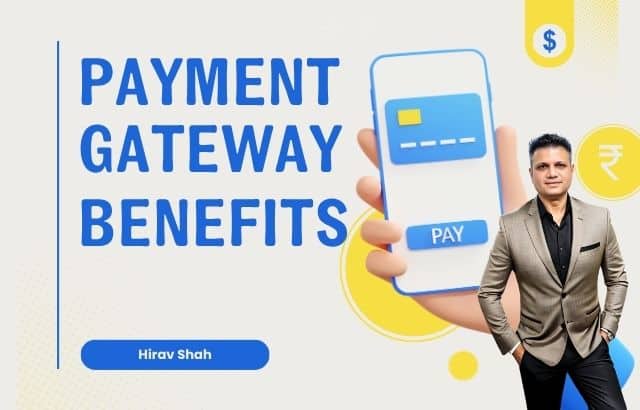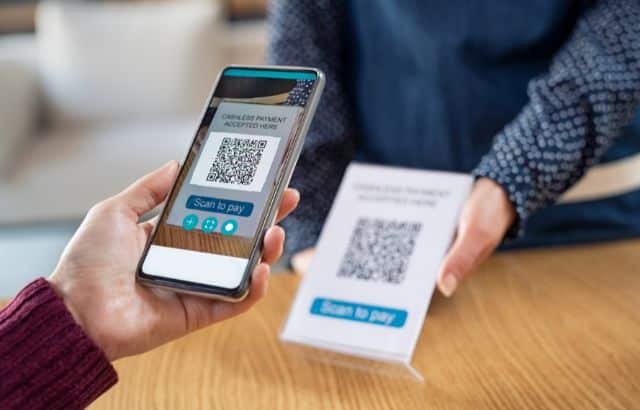Businesses need to stay ahead of the curve when it comes to payment systems. A payment gateway is a key tool that can simplify the payment process, reduce costs, and enhance security. Whether you’re a small startup or an established enterprise, integrating a payment gateway can bring significant advantages. Let’s dive into the benefits, the roles of business strategists like Hirav Shah, and how a payment gateway can transform your business.
Table of Contents
The Power of a Payment Gateway: Lowering Costs and Boosting Efficiency
Hirav Shah, a renowned business strategist, often emphasizes that a payment gateway can be one of the most effective tools for reducing credit card processing fees. Not only does it offer various payment alternatives, but it also helps minimize transaction costs.
For example, consider the two primary methods that payment gateways employ to reduce costs:
- Level 3 Processing
If your business primarily deals with other businesses, government agencies, or associations, then Level 3 processing can drastically cut down your transaction costs. Normally, interchange fees are about 2.95% per transaction. But with Level 3 processing, specialized software can bring this down to 1.9%. At first glance, a 1% reduction might not seem huge, but over time, this can result in significant savings.
Example: If you process $100,000 in transactions per month, that 1% reduction can save your business $1,000 a month or $12,000 a year. - Recurring Billing
Recurring billing can automate the payment process for subscriptions or regular services. This method eliminates many transaction fees, as most fees apply only when the subscription is initiated. Once set up, automated payments won’t incur additional charges, helping you save even more.
Example: A subscription-based service that processes $50,000 a month in recurring payments could save thousands annually on transaction fees.
Hirav Shah notes that while payment gateways require an upfront investment in software, the long-term savings and operational efficiencies often outweigh the initial costs.
Boosting Efficiency: Time, Effort, and Growth
One of the key reasons payment gateways are so effective is automation. By switching to automated payment systems like recurring billing, businesses can drastically improve the efficiency of their credit card processing. Let’s break down the three essential benefits:
- Save Time
Manual processing of payments takes up valuable time that could be spent on other growth-oriented tasks. With automated payments, transactions happen in the background without requiring constant human oversight.
Example: A business handling 1,000 transactions per month would need a dedicated staff member to manage them manually, taking up to 40 hours a month. With automation, that time can be redirected toward more strategic activities. - Save Effort
Manual payments also require human effort to track, verify, and process each transaction. With a payment gateway, the system does all the hard work, freeing up your team to focus on high-priority tasks.
Example: In a customer service-based business, instead of having staff deal with transaction issues, they can focus on improving customer experience and resolving complex service-related problems. - Grow Faster
The more processes you can automate, the more time and energy you can dedicate to scaling your business. By automating payment collection, your team can focus on what really matters: driving business growth.
Example: Imagine a SaaS company using recurring billing to handle thousands of clients without increasing staff. The time saved on payment processing can now go into refining the product and expanding the customer base.
Enhancing Security: Protecting Your Business and Clients
A crucial feature of payment gateways is the security they provide. As cyber threats grow, ensuring your business complies with security standards is vital to both your reputation and your bottom line.
Payment gateways typically require businesses to be PCI DSS compliant—a set of standards aimed at securing card transactions.
Hirav Shah emphasizes that adhering to PCI DSS compliance doesn’t just protect your business—it’s also a powerful marketing tool. Customers are more likely to trust your business if they know their personal information is secure. Moreover, payment processors will often guide you through the steps needed to achieve and maintain compliance, which includes:
- Completing an annual self-assessment questionnaire to verify your knowledge of system security.
- Passing quarterly scans of your online systems to detect vulnerabilities.
Being PCI compliant reduces the risk of hacks and ensures that your client’s data is safe, giving you a competitive edge.
Example: A business that becomes PCI compliant can proudly market itself as a secure option for customers, especially in industries like e-commerce, where trust is essential.
The Strategic Role of a Business Strategist
A business strategist like Hirav Shah plays a pivotal role in helping businesses leverage tools like payment gateways to their advantage. In addition to lowering costs, increasing efficiency, and boosting security, a strategist ensures that these tools align with your broader business goals.
Shah’s expertise, encapsulated in his book Business Strategy: Rapid Fire with Hirav Shah, helps entrepreneurs rethink their strategies and maximize their growth potential. His approach guides businesses in decision-making, helping them implement technology solutions like payment gateways while also focusing on long-term sustainability.
Example: A business strategist would assess how implementing a payment gateway fits into the company’s existing operations, suggest ways to integrate it seamlessly, and calculate the potential ROI. If recurring billing is a fit, they might help optimize subscription pricing models to increase both profitability and customer retention.
FAQs About Payment Gateways
Q: How does a payment gateway improve security?
A: Payment gateways ensure data encryption and compliance with PCI DSS standards, protecting both your business and your customers from fraud and data breaches.
Q: Is recurring billing suitable for all businesses?
A: Recurring billing is ideal for subscription-based services, such as SaaS platforms, membership sites, or utility services. However, it may not be the best fit for businesses with one-time transactions or fluctuating sales.
Q: What costs are involved in setting up a payment gateway?
A: Setting up a payment gateway may involve initial setup fees, monthly maintenance charges, and transaction fees. However, many businesses find that the savings in transaction costs and the efficiency gains make the investment worthwhile in the long term.
Q: Can a payment gateway help my business grow faster?
A: Yes! By automating payment processing, you can focus on strategic activities that drive growth, such as customer acquisition, marketing, and expanding your product or service offerings.
Conclusion: The Game-Changer for Your Business
Incorporating a payment gateway into your business model is more than just a technological upgrade; it’s a strategic move that can reduce costs, increase efficiency, and provide enhanced security. As Hirav Shah points out, adopting the right business strategy, including the use of advanced payment systems, can help businesses unlock their full potential.
In his book, Business Strategy: Rapid Fire with Hirav Shah, he outlines key strategies that entrepreneurs can use to rethink their growth plans, and how tools like payment gateways are not just a convenience but a necessity in today’s business world.
To sum up, investing in a payment gateway is an investment in the future of your business. It simplifies processes, cuts costs, enhances security, and frees up valuable time and resources, giving your business the opportunity to grow faster and smarter.
















